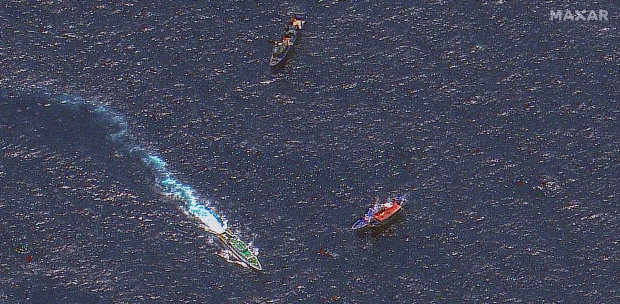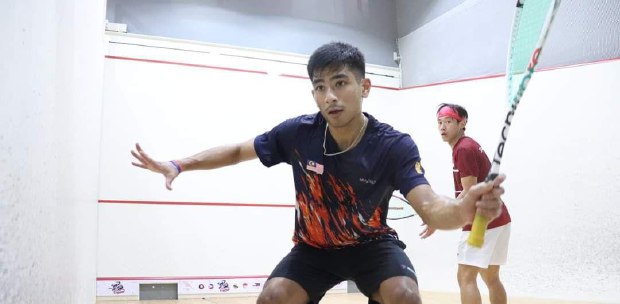THERE could hardly be bleaker choices facing these two so similar but so different sprawling archipelagos.
We have to wait another week before being sure that the mayor of Jakarta has become Indonesia’s superbly popular president. He may not have much international experience, but if elected, he’ll be going to the White House soon.
Joko “Jokowi” Widodo, starting with an insuperable lead, lost it because of a well-organised
money-driven campaign by a ruthless former commander of the Special Forces, General Prabowo Subianto. It’s a choice between the future and the past.
To be fair, I have a special grudge. People allegedly connected to Probowo, according to an impeccable source, threatened the life of a friend who was only trying to collect what was owed to him.
The threat extended to me, but my friends assured me that they could protect me but not my friend. I told my friend that his life was worth more than the trivial sum involved, but the tactics were classical Probowo, from all we know about his career in the Special Forces.
In all fairness, retiring President Susilo Bambang Yudhoyono is being given little credit for his immense accomplishment. Miracles he may not have performed. But he was Indonesia’s first professional president, who went to the office every day and actually worked, trying his best to solve Indonesia’s overwhelming problems.
The founder president Sukarno turned out to be a demagogue, and his successor a ruthless dictator. Then there were three lacklustre presidencies. The well-meaning Abdurraham Wahid (Gus Dur) seemed to spend more time praying than governing. President Megawati Sukarnoputri served a lot of tea and ignored warnings of terrorist attacks.
Under Susilo, the exercise of democracy was institutionalised, and is now under direct threat, if we’re to believe Probowo’s pronouncements, including a preference for a president chosen by Parliament. All we can do now is pray that the votes are counted more or less honestly.
In the Philippines, nobody takes corruption very seriously. It’s just an accepted part of daily life, particularly at the top. President Benigno Aquino is honest to a fault, but unable to discipline those around him making fortunes from his presidency.
But now something has happened that really grabs attention.
There is a perfectly honourable so-called pork barrel fund intended to generate useful projects in the provinces; congressmen get about RM4 million ringgit, and the nationally-elected senators five times as much.
Some years ago, I travelled with Congressman Gary Teves around his province in Negros Island.
His computer had files for every village, listing disbursements for the previous two years from his share of the pork barrel fund.
If a village had delivered on its promises, it got more for the next year. If the Kapitan just spent his dispensation on a new car, his village got nothing. It was fair and honourable.
Now comes businesswoman Janet Napoles, who locked up a subordinate intending to squeal to the press about her remarkable scam, but he escaped with an abundance of evidence.
She concocted phoney non-governmental organisations (NGOs) to which congressmen and senators could contribute through her central money laundering fund. The NGOs got nothing because generally they didn’t exist, and she got up to 40 per cent and the rest was refunded to the personal accounts of the senators and congressmen.
The issue has riveted the Philippines, because the scam is on a vast scale of billions of pesos in public funds. And it seems the richer the senator, the more he demanded.
The former Senate president, Johnny Ponce Enrile is vastly rich with properties and companies all over the Philippines.
He had used his public positions for more than 50 years to enrich himself and his family, by all
accounts. And he and his chief of staff got hundreds of millions in the scam.
Given his age — 90 — he is getting special treatment under the charge of plunder. But two other senators were locked up in jail.
It will hardly seem surprising that the legislative branch is not getting much work done, as the crisis unfolds with more extraordinary revelations.
The difference between this scam and others is that the funds are so traceable, and the moral gap between the intended recipients and the actual ones is so vast.
Aquino, without so much as an agenda, has accomplished a great deal by his sense of timing and his personal example.
It remains to be seen if he can devise a way to bring closure to this scandal and make a new start with funds intended for national development.
And in Indonesia, given the hopeful outcome, it would be another miracle for Jokowo to translate his charismatic personality into a less corrupt and faster growing Indonesia, which largely depends on his more investment-friendly agenda.
There is a lot at stake in the two most populous Southeast Asians nations.




